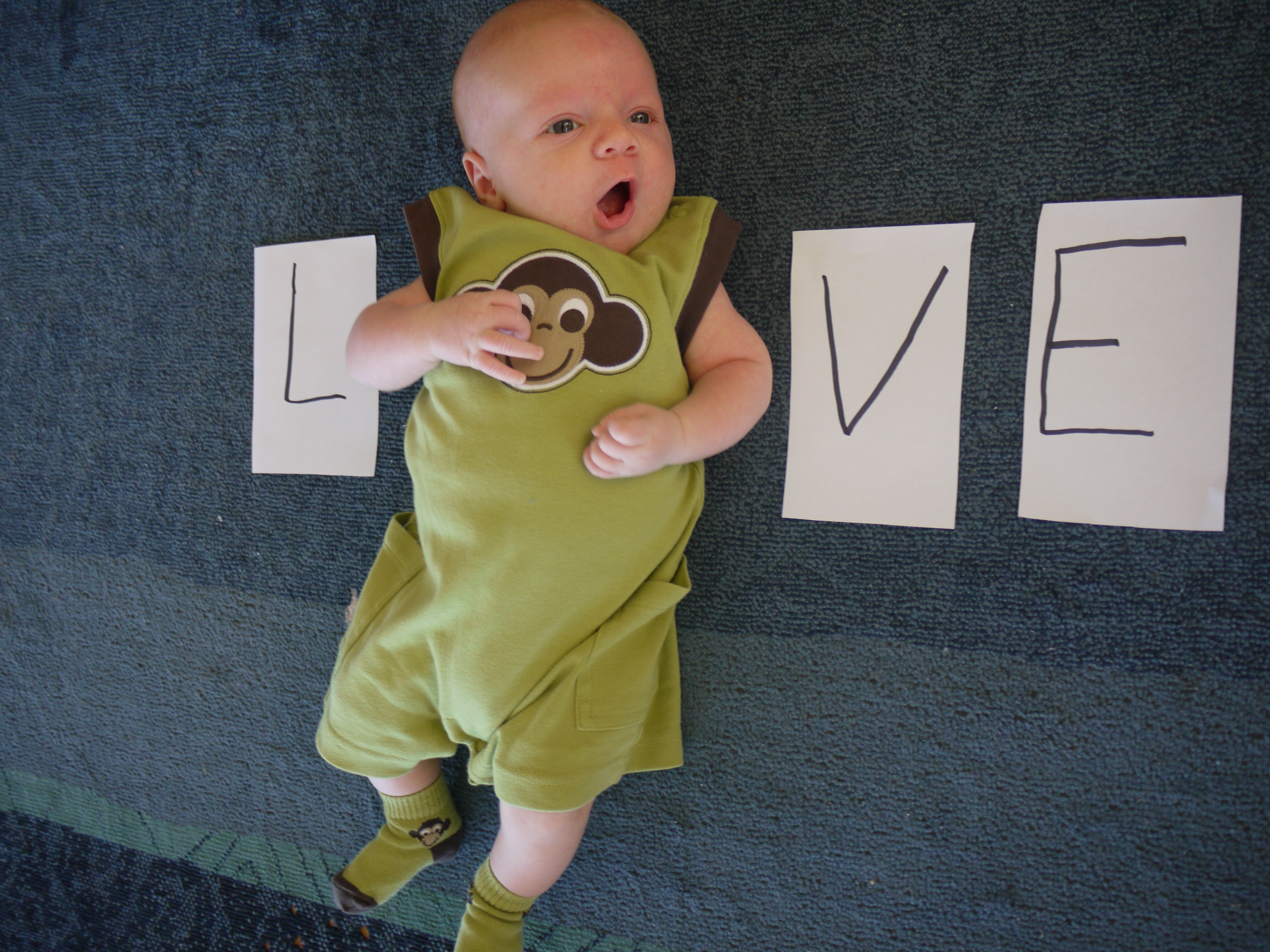In these bodies we will live
In these bodies we will die
Where you invest your love, you invest your life
(Mumford and Sons)
Love: What wells up when my baby flashes a gummy grin of delight when I bend down and speak to him.
Love: How I feel about the chocolate ice cream that AB Bakery has just started making. Yes, folks, we may not have incredibly reliable electricity over here in Laos, but there’s now some good ice cream in town.
Love: The fact that my husband, Mike, dragged himself out of bed at 5:15 this morning, took our flapping, squawking child and our whimpering dog away, and let me sleep until nine.
Is there any word in the English language as versatile as the word love?
After I started to get the hang of breastfeeding (read: after I no longer wanted to cry every time the baby started to open and close his mouth like a clam and I could actually concentrate on something other than pain and technique), I started to read during daytime feedings. This is probably why Dominic went from average to above-average weight within three weeks. More than once I picked up the kindle after he was attached and then completely stopped paying attention – leaving my son to gulp until he was absolutely stuffed and then fall off and lie there, happily somnolent and dribbling milk down my stomach.
The first book I read during this time was a young adult novel called Delirium. The premise is fascinating – the 17-year-old narrator, Lena, lives in a society where love is considered a disease, something to be surgically cured when you turn 18. As the booklist review puts it, “[The author’s] masterstroke is making a strong case for love as disease: the anxiety, depression, insomnia, and impulsive behavior of the smitten do smack of infirmity.”
Lena views love as a feeling – a transformative feeling, impossible to resist. “Love,” she says, “is a single word, a wispy thing, a word no bigger or longer than an edge. That’s what it is: an edge, a razor. It draws up through the center of your life, cutting everything in two. Before and after. The rest of the world falls away on either side.” It is that most dangerous of diseases, “the one that can kill you when you have it and kill you when you don’t.”
There is some beautiful writing in this book, but ultimately it didn’t wow me. Love is too narrowly defined as passion, desire, eros. There is little exploration of agape love.
Agape love is a selfless orientation that seeks the best for another without expecting anything in return. This type of love doesn’t transform us in a moment; it transforms us slowly, as hundreds upon thousands of moments pile on top of one another to make up our days, our weeks, our months. This love is not the work of a razor but of sandpaper. Sandpaper that grinds, smooths, and ultimately fashions the very core of us into something more beautiful. It is a love powered by will rather than only by emotion, a love of choice rather than just a love of chance.
A love of choice.
I was reminded recently of the popular misconception that you do nice things for people you like and bad things to people you don’t. But the paradoxical truth of the matter appears to be that you grow to like people for whom you do nice things and hate people you harm.
David McRaney in an article on the Benjamin Franklin effect put it this way:
“It is well known in psychology the cart of behavior often gets before the horse of attitude. Your actions tend to chisel away at the raw marble of your persona, carving into being the self you experience day-to-day. It doesn’t feel that way though. To conscious experience, it feels like you are the one holding the chisel, motivated by existing thoughts and beliefs. It feels as though the person wearing your pants is performing actions consistent with your established character, yet there is plenty of research suggesting otherwise. The things you do often create the things you believe.”
The things you do often create the things you believe.
How do you love others with the love of choice? How do they love you? Have you thanked them for the way they care for you lately?




Lisa, that’s really interesting. I’d never heard of that theory. I’ll be chewing on it today.